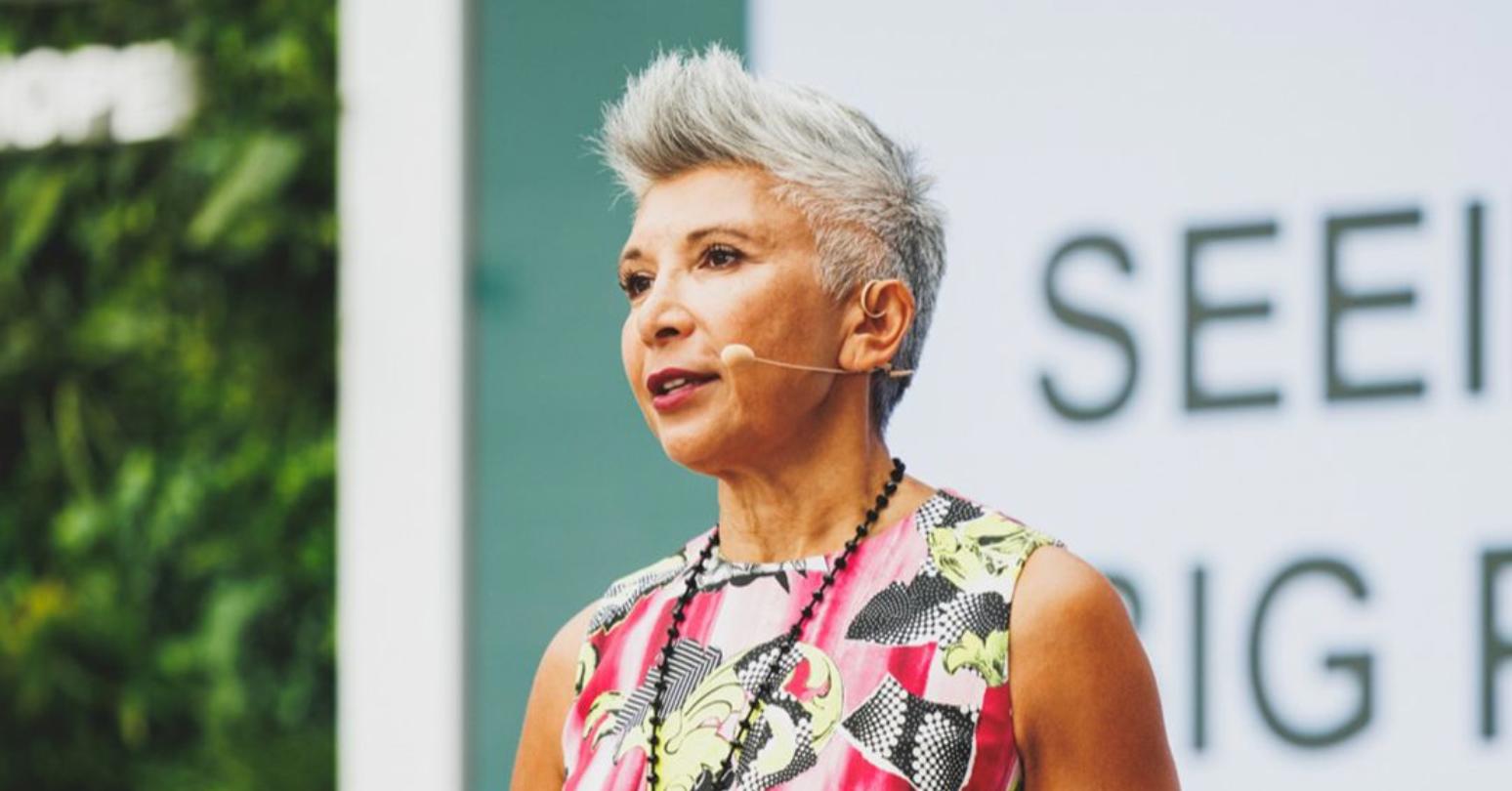Businesses need to drive sustainable development through big-picture thinking rather than rely on government policies to protect society and the planet, Ivey’s Tima Bansal told leaders and students from around the world today during her address at the 2022 Estoril Conferences.
“Most people assume that government must drive sustainable development, but government only sets the policy framework for us – for business. And it’s not only about individual actions because the reality is businesses have so much influence over what we do,” said Bansal. “We, as business leaders or future business leaders, need to drive action. We need to change the way that businesses act.”
Bansal, a professor of General Management, Sustainability, and Strategy and founder of several sustainability initiatives at Ivey, was one of more than 50 notable speakers at the two-day conference, running September 1-2 at Nova School of Business and Economics in Cascais, Portugal. The goal of the conference was to create dialogue on current global challenges and explore innovative solutions.
Business is wired for profits
During her speech that was livestreamed to thousands of spectators, Bansal discussed how business is wired for profits, not sustainable development, because each function in business is aimed at profit-making. Some examples include strategy to facilitate growth, marketing to sell products, and finance to discount future earnings. And together these parts drive demand and deplete natural resources, which deters sustainable development, says Bansal. She defined sustainable development as meeting human needs for both present and future generations.
“Ultimately, we produce more, we consume more, and we create more inequalities. We have unintentionally become unsustainable,” she said. “Unless we change the way that business schools run and the way that businesses run, we will continuously fall off of a cliff.”
To help reverse the trend, Bansal said businesses should not only reduce harm to society and the planet, but also focus on creating products and services that enhance lives and build stronger communities.
Putting business in the big picture
To aid sustainable development, Bansal said business leaders need to see their companies in the big picture, or as part of a larger system, where their actions might create a reaction that could hurt others within the system.
“We have to start remembering what we do in the big picture. Systems thinking says, when we act, there’s a reaction and we can’t always control that reaction because we operate in a system,” she said. “Organizations can lose sight of that system.”
Bansal discussed how Ivey has developed Innovation North (formerly the Innovation Learning Lab), which collaborates with large enterprises to incorporate systems thinking into their business strategy, with a goal to build a toolkit to help companies apply systems thinking.
“We believe that we can embed systems thinking into innovation so companies aren’t just producing more product, but are thinking about the impact of the product, not just on their profits, but on the system,” she said.
Applying systems thinking
Bansal shared examples of how Innovation North is fostering new approaches to innovation in business. One example is Co-operators, one of Canada’s largest insurance companies, which is looking at ways to build houses that can better withstand extreme weather events and are made from sustainable materials to reduce the amount of waste going to landfills.
Another is a collaboration between the NEO stock exchange and Royal Bank of Canada to create an equity instrument to finance nature-based solutions.
Such examples show the potential for business activities that create a more prosperous and sustainable society, said Bansal.
“We can look for simple, but wrong answers and all walk off the cliff… or we can look for the systems approach, which is a complex one, but the right one,” she said.
Business does not need to be the problem. It can and should be the solution.”
– Tima Bansal
Ivey’s participation at the 2022 Estoril Conferences
The 2022 Estoril Conferences also included an opportunity for leaders of institutions within CEMS; a global alliance of leading business schools, multinational companies, and NGOs that together offer the CEMS Master in International Management (MIM) program; to discuss critical global issues. Ivey Dean Sharon Hodgson; Lyn Purdy, Associate Dean, Programs; and Bansal participated in the CEMS meeting. A project on Web 3.0 by a team of CEMS (MIM) students at Ivey was also displayed at the conference.



